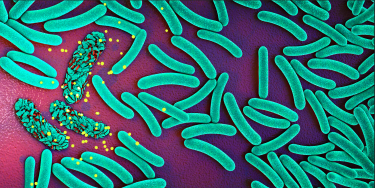Health & Medicine

Research
The promise and peril of AI chatbots in healthcare
Artificial Intelligence chatbots like ERNIE Bot, ChatGPT and DeepSeek can often outperform doctors in diagnosis, but we need safeguards to avoid overprescribing and reinforcing inequality

Research
Revisiting a 100-year-old medical treatment to tackle the growing crisis of antibiotic resistance
Bacteria-killing viruses were used more than 100 years ago to treat infections, and now, as antibiotic-resistant infections increase, researchers are studying how we could bring them back

Opinion
I’m a GP who’s built 10 apps without writing a line of code
As a GP and public health researcher, developing apps isn’t in my skill set. But I’ve now built 10 functioning apps from scratch. Welcome to the world of vibe coding.

Analysis
There are pros and cons for weight loss medications like Ozempic
Drugs like Mounjaro and Wegovy have led to a sudden shift in treatment, but also to a lot of questions about how we think about and treat obesity

Q&A
‘It’s still the same for me as it was years ago’
Laureate Professor Graeme Clark AC, who led the team that invented Australia’s multi-channel cochlear implant, says he still cries “tears of joy” when someone’s hearing is restored

Research
Why is research into women’s mental health decades behind?
Historically, medical research has excluded women as too complex. But a new study is investigating how the brain may drive alcohol misuse differently between the sexes.

Analysis
What are drugs like Ozempic doing to the brains of people that binge eat?
New medications are reshaping how people eat, but we need to be wary of their potential impact on people with eating disorders

Research
AI joins the fight against superbugs
For the first time, Australian scientists have used AI to make ready-to-use proteins that can kill antibiotic-resistant bacteria

Go Figure
Just how identical are identical twins?
Myths and legends have surrounded twins for centuries. Here, we explain how they’re formed, how alike they really are and what twins teach us about human health
